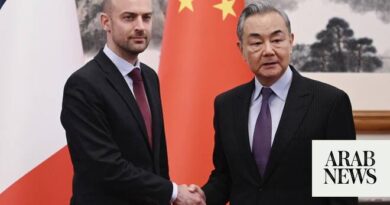Manual for Muslims with LGBTQ+ kids

A new parenting guidebook titled “Faith, Family, and Pride: A Parent’s Guideline”, has been launched to help Muslim parents in the southern border provinces raise LGBTQ+ children with compassion while still adhering to their Islamic teachings.
Released on Aug 9 in Yala by the Association of Children and Youth for Peace in the Southernmost Provinces, Look South Peace, Prince of Songkla University, and the Thai Health Promotion Foundation, the manual aims to help parents support their LGBTQ+ offspring without judgement, while maintaining religious principles.
According to its preface, it does not seek to change Islamic teachings but encourages families to provide safe and loving environments as a way to prevent harm.
Although it includes references to Buddhist and Christian parenting approaches, the book focuses on the unique social and cultural context of the Muslim-majority provinces of Pattani, Yala, and Narathiwat.
Topics include Islamic principles on child-rearing, gender and sexuality in Islam, challenges faced by Muslim LGBTQ+ youth, and guidance for when children come out.
It also addresses prejudice, discrimination, cyberbullying, and exclusion from school activities, while offering strategies for digital-age parenting, strengthening family bonds, and safeguarding children’s mental and physical well-being.
Wannakanok Pohitaedaoh, the association’s chairwoman, said her team had worked quietly on the issue for five years due to local religious sensitivities.
Two years ago, they surveyed 300 Muslim LGBTQ+ youth and found that while many felt more empowered and increasingly accepted, they still faced gender-based violence, public humiliation, and limited access to opportunities.
“Some children are denied jobs, excluded from sports, or shamed during school ceremonies,” Ms Wannakanok said.
“Domestic violence is also an issue, yet families are the ones these children care about most.”
She noted that the guidebook emerged from requests by young people to involve families more closely.
“We want to show that being LGBTQ+ in our religion does not mean being a sinful or a bad person,” said Ms Wannakanok.
“This is about destigmatising children without damaging family relationships.”
She explained that the guidebook, co-written with Prince of Songkla University lecturer Sofiya Nima, cites the oral tradition known as hadith for advice on Islamic principles. Community feedback has described it as “innovative” for addressing a sensitive topic through faith-based dialogue.
Although funding has now ended due to shifting priorities and budget cuts, especially from USAID, Ms Wannakanok said the group plans to continue using the guidebook through community networks and family advocates, aiming to create safe environments for both open and closeted LGBTQ+ individuals.
Source – Bangkok News



